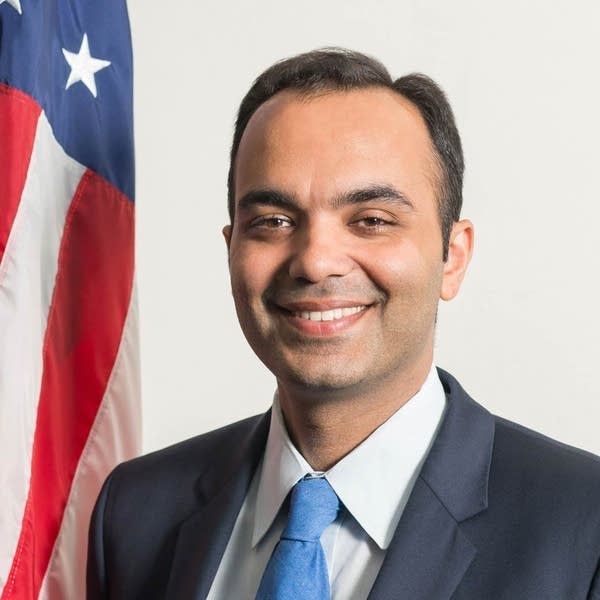As tech companies look more and more like financial institutions, oversight is growing, too.

The tech industry is kind of every industry at this point, including the financial industry, which is why the the Consumer Financial Protection Bureau is starting to pay a lot more attention to tech companies. From PayPal, to Apple Pay, to Meta’s digital currency, the agency set up to rein in big banks is now calling out Big Tech. Last month, it asked online payment processors for more information on how they are operating.
Marketplace’s Kimberly Adams went to the CFPB’s offices, just across the street from the White House, and asked the new director, Rohit Chopra, if he believes his agency is adequately equipped to take on these big companies. The following is an edited transcript of our conversation.

Rohit Chopra: Well, we have always been outnumbered by entities that we oversee, whether it’s big firms in Silicon Valley or on Wall Street. Some of their compliance departments are probably bigger than the entire CFPB. But these are issues that are going to shape the future of not just payments, but the entire financial system. And so I don’t subscribe to the view that we should shy away from it. It’s going to require us to deeply understand how the technology works and, again, what tools we have to stop harms to people.
Kimberly Adams: What are some of the early actions that you can take as director that you think will actually make a difference that consumers can feel?
Chopra: Part of it is making sure that algorithms are not reinforcing discrimination. So we are charged here with enforcing key anti-discrimination laws when it comes to banking and lending. And I am concerned that a lot of the algorithms and mass data collection that happens in our day-to-day lives is essentially reinforcing the structural discrimination that has long existed. That’s one thing. I think another piece of this is there’s lots of ways in which data is being collected about us that is misused and abused.
Adams: Through your work at the Federal Trade Commission and other places — there have been fines against these big companies. But they are so large that it doesn’t really make a dent on their balance sheet. What sorts of enforcement actions actually will matter to these companies?
Chopra: It really depends on what took place. We often see this — there are many, even in the financial industry — there are many incidents of firms violating the law over and over and over and over again. In many cases, there has to be a question of should they really be allowed to stay in business unless there are massive governance changes? Several years ago, the Federal Reserve Board actually told Wells Fargo, “You can’t grow your assets. We’re hitting pause on this.” I think that had a lot more impact than, let’s say, some fine.
Adams: So what can you do here that you couldn’t do at the FTC?
Chopra: Well, here we have a number of laws, the Fair Credit Reporting Act, which protects all of us from not just the big credit-reporting companies, but other companies who are harvesting data and selling it about us. We have laws like the Electronic Fund Transfer Act, which, when you swipe your debit card or credit card, that is a law that protects you when fraud has occurred. So we have a number of laws that are directly related to many of Big Tech’s ambitions, including to get more control over our payment system. These companies want control of the payment system, and they want to track us that way. And there are many, many implications for consumer protection when it comes to those issues.
Adams: Let’s talk a little bit more about payment systems because that was one of your first actions as director. Why was this at the top of your priority list?
Chopra: Well, there’s no question that faster and frictionless payments is actually something all of us want. It is better to be able to split the bill at a restaurant. It is better to be able to send money to your family overseas using fast and frictionless payments. There’s real great innovation that we want and need. The question is, what’s potentially the darker side of that? What data is being harvested about us? When someone controls the payment platform, how do they decide who gets kicked off? How do they decide if they want to start competing with a business accepting their payment system? All of these are tough questions, and it’s why we asked and ordered a set of documents and information from many of the large tech companies to help us get to the bottom of it.